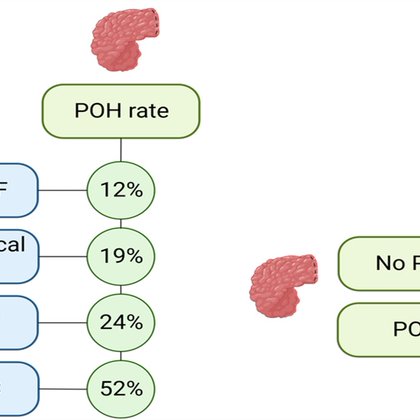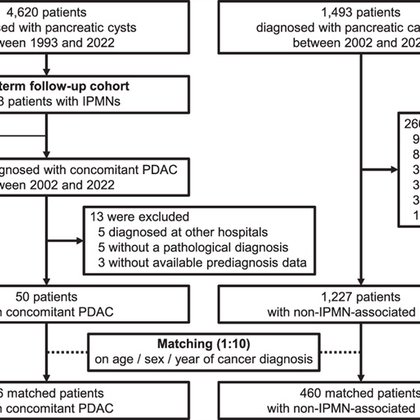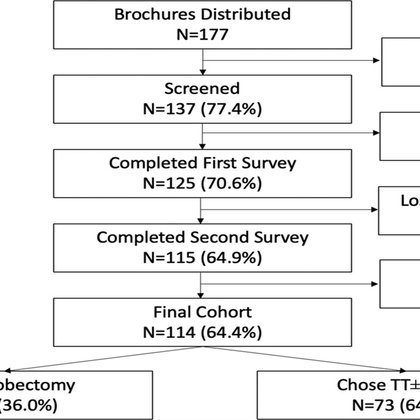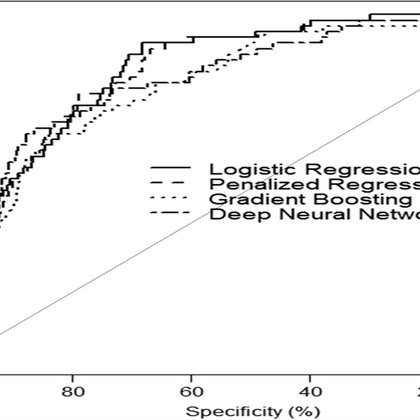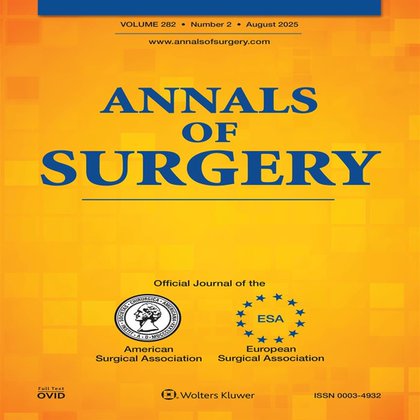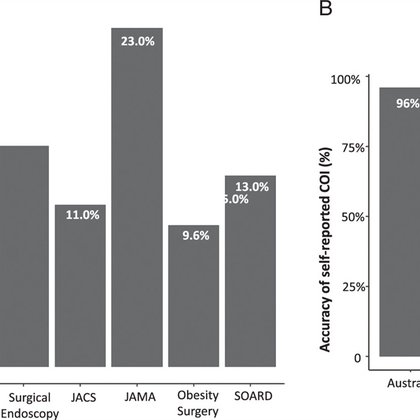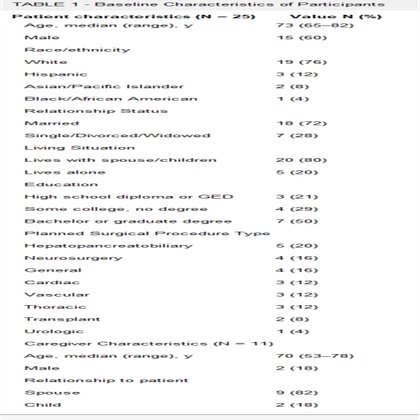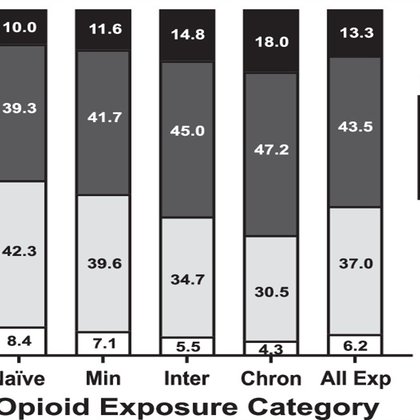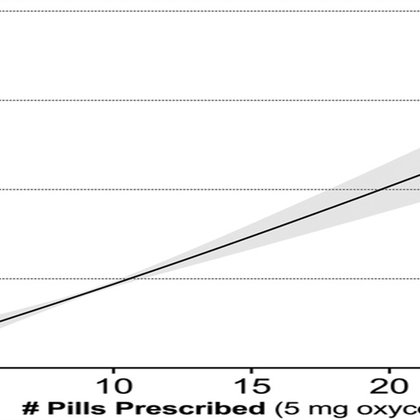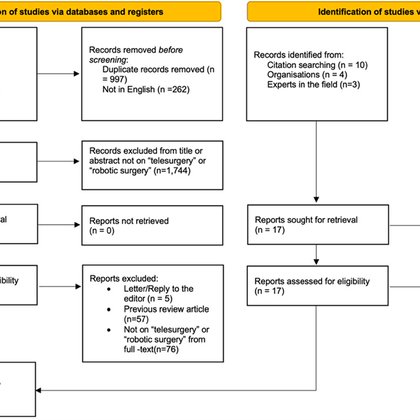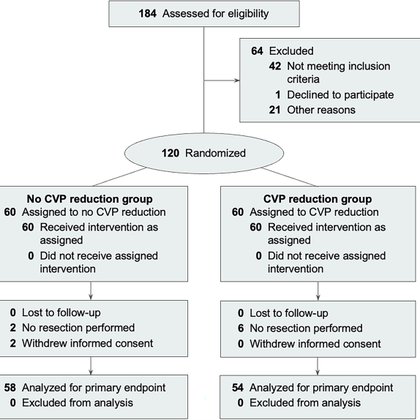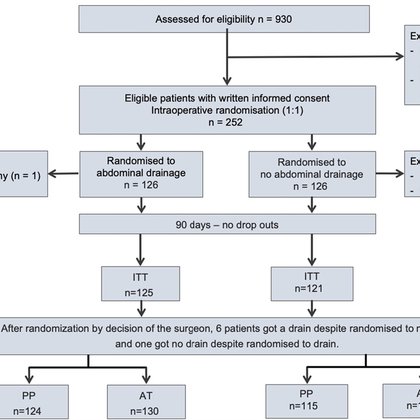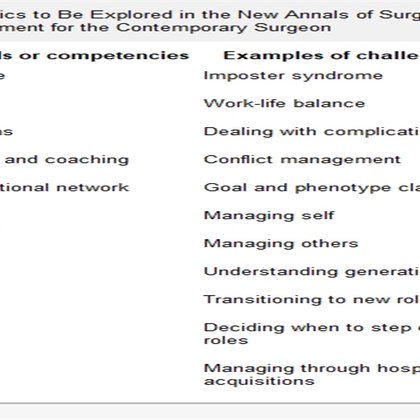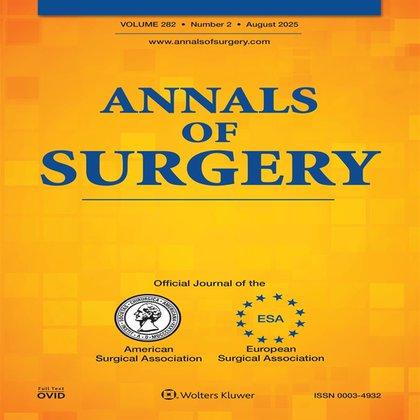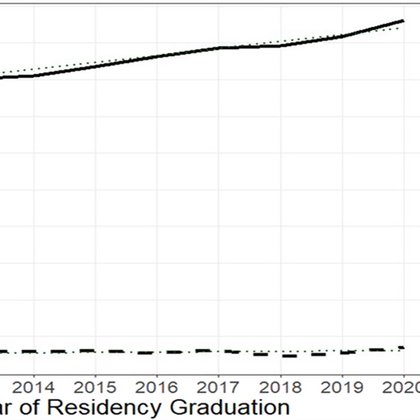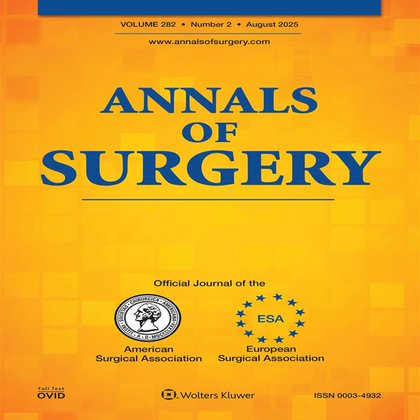
Annals of Surgery
@AnnalsofSurgery
Followers
57K
Following
3K
Media
1K
Statuses
11K
The world's most referenced surgery journal—committed to discovering & disseminating the best of surgical science.
#VisualAbstract
Joined October 2011
In a multicenter study, early postoperative hyperamylasemia strongly predicted pancreatic fistula after distal pancreatectomy—offering a simple, early warning signal.
journals.lww.com
levance of POH after DP and its relationship with the occurrence and severity of POPF have not been explored yet. Methods: All patients undergoing DP for any indication between 2015 and 2021 at 3...
0
0
1
Patients under IPMN surveillance were more likely to have early-stage concomitant cancers—and better outcomes—than those diagnosed outside surveillance.
journals.lww.com
s recommended for patients with low-risk IPMNs. However, it is unknown whether the surveillance can improve surgical and survival outcomes of patients with concomitant PDACs. Methods: Using a...
0
1
2
In patients with low-risk thyroid cancer, values shift over time—initial fear of recurrence gives way to greater focus on quality of life. Preferences aren’t fixed.
journals.lww.com
align with their preferences. Methods: Adults with clinically low-risk TC enrolled in a prospective, multi-institutional, longitudinal cohort study from November 2019 to June 2021. Participants rated...
1
1
3
This study developed and validated a risk calculator to predict mortality before transfer for general surgery patients—offering a new tool to guide triage decisions.
journals.lww.com
of interhospital transfer for Emergency General Surgery patients that are “unseen” by the accepting system. Methods: Patients transferred to general or colorectal surgery services from January 2016...
0
0
4
In over 870,000 surgeries, no difference in mortality or complications was found between overlapping and non-overlapping cases—if overlap followed strict safety guidelines.
journals.lww.com
ncurrent surgery” with overlap during a procedure’s critical portions. Guidelines for nonconcurrent overlap have been established, but the safety of subsumed surgery remains to be examined. Methods:...
0
5
16
Only 29% of hospital consent forms mention overlapping surgery—and just 7% meet federal transparency recommendations. Patients often aren’t told their surgeon might be in another OR.
journals.lww.com
ith patients regarding this practice through the informed consent process, but it remains unclear how many institutions adopted their recommendations. Methods: Informed consent documents were...
1
0
1
Nearly 1 in 3 surgeons publishing in top journals misreported industry conflicts of interest—most often underreporting major payments. Accuracy was lowest in U.S. authors and senior authors.
journals.lww.com
y. Despite the enactment of COI laws, such as the Physician Payments Sunshine Act in 2010, prior work suggests that 40% to 70% of self-reported COIs have discrepancies. Methods: We utilized 3 public...
0
5
14
Older adults face far more than physical recovery after surgery—emotional strain, loss of independence, and unmet expectations shape their journey in ways often overlooked.
journals.lww.com
an increase susceptibility to poor health outcomes. How these vulnerabilities influence surgical treatment and recovery is understudied in the geriatric surgical population. Methods: Adults aged 65...
1
4
19
Preoperative opioid use was linked to higher 30-day mortality and complications after major elective surgery—highlighting the need for better pre-op risk stratification and support.
journals.lww.com
tcomes after surgery remains incomplete. Therefore, this study was designed to test the hypothesis that preoperative opioid exposure may impede recovery in the postoperative period. Methods: This...
0
1
11
Most emergency surgery patients used only half of the opioids they were prescribed—and those prescribed more didn’t report less pain or better satisfaction. Less can be more.
journals.lww.com
utor to opioid misuse and dependency. Current guidelines do not address opioid prescribing after emergency surgical procedures, highlighting the importance of understanding the relationship between...
3
3
13
Telesurgery is technically feasible and increasingly safe—but widespread adoption remains limited by legal, financial, and infrastructure barriers. The future is promising, but unevenly distributed.
journals.lww.com
decades since the first successful case of telesurgery and since this time, there have been significant technological and telecommunications advancements. Methods: A systematic review of the litera...
1
3
13
PRESSURE trial: Avoiding CVP reduction during minimally invasive liver resection didn’t increase bleeding—but cut intraoperative hemodynamic instability in half.
journals.lww.com
aoperative blood loss, as a major predictor of postoperative outcomes. However, the effect of CVP reduction on blood loss in MILR remains unclear. Methods: This study is a randomized controlled,...
1
5
15
PANDRA II trial: Routine drainage after left pancreatectomy offers no benefit—and may increase complications. It’s time to rethink the default drain.
journals.lww.com
g potential benefits in omitting drains. Methods: The PANDRA II trial was a randomized controlled noninferiority study conducted at the University Hospital Heidelberg between 2017 and 2023. It...
1
7
25
We, at Annals, are launching a new section on professional development—spotlighting leadership, mentorship, and the real-world skills surgeons need but rarely get taught.
journals.lww.com
An abstract is unavailable.
0
2
7
RT @MarcBesselink: Found that @Google Scholar ranks medical #journals by h-index and decided to check #surgery journals, interesting! @jdim….
0
8
0
“Checkmark” credentialing fails to catch unprofessional behavior in medicine. This piece argues for 360-degree reviews as a fairer, more effective way to support improvement and protect patients.
journals.lww.com
An abstract is unavailable.
1
1
6
LGBTQ+ surgeons face discrimination, burnout, and isolation—yet still remain underrepresented. Real change requires mentorship, inclusive policies, and visible allyship in training and leadership. @steven_xie96.
0
1
5
Rural surgery faces more than a training gap—it faces a strategy gap. While rural tracks offer some benefit, real progress requires coordinated action on workforce, policy, and hospital sustainability.
journals.lww.com
An abstract is unavailable.
2
4
15
Surgery residents with rural training exposure are more likely to practice in rural areas—but just 6% of graduates do. Even brief rural experiences help, but workforce gaps persist.
journals.lww.com
ted increased attention toward rural training. However, the association between exposure to rural surgery during residency and practice in rural communities remains limited. Methods: We performed a...
0
0
6
Despite progress, women surgeons still face deep-rooted barriers to leadership. Cultural expectations, caregiving burdens, and structural bias must be addressed—or risk losing hard-won gains.
journals.lww.com
An abstract is unavailable.
0
13
32

